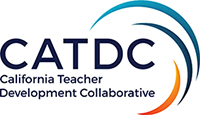Lessons from My First Year of Leadership

This year was my first as an administrative leader. After teaching for many years, I was promoted to interim division head and needed a crash course in effective leadership. Thankfully, the CATDC was offering an ongoing program for new leaders. The four meetings over the course of the year provided me with a network of colleagues and a wealth of advice. As I look back over this past year, I am reminded of the many lessons I have learned as a first year leader. While I can’t include all of them here, I’ve chosen my five most impactful lessons:
Lesson 1
As a starting point, I thought about the meaning and significance of leadership. For me, leadership is anchored in the service of others. This is what allows me to thrive during the good times and survive during the difficult times. I nurture this belief by turning to the words of leaders who have endured far greater trials than me and I am reminded of how they have handled difficult situations with grace and dignity.
In looking at your own situation, consider finding a mantra that anchors you. It might come from a spiritual text or from the advice of a respected peer. Wherever you find those words, paste them to your desk or tape them to your ceiling. You’ll see them when you lean your head back and sigh or cast your gaze down and groan. These will be the words you can turn to when you need to remind yourself of why you lead and serve.
Lesson 2
Make time to do the things that are important to you. As a new administrator, you may have had great intentions of visiting classrooms every day and eating lunch with students, but then your inbox blew up and you began spending every day hunched over a keyboard. Instead of allowing others to dictate your daily schedule, become a master of your own day. Schedule everything that you want to do and need to do. Slot in the less important stuff around it. As author Stephen R. Covey wrote in The 7 Habits of Highly Effective People, there are tasks that are urgent and important, and those must be dealt with immediately, and there are also tasks that are important but not urgent. Building relationships is an important task, but not an urgent one. However, that task needs to be put on the calendar and it comes in the form of visiting classrooms and having lunch with students. Once these items are on your schedule you can move them around to make way for urgent matters, but don’t ever delete them. These will serve as the building blocks to quickly work through the urgent situations that arise.
Lesson 3
Don’t rush a decision. Speed is the enemy of thoughtfulness. Remember that for every incident that occurs, there are at least two versions of what happened; oftentimes, there are more. So bring in third parties to verify or debunk the facts as they have been reported to you. Ask questions about what someone heard or observed as it can differ from the story they want to tell. Repeat back to individuals exactly what they have said to you. And then ask, how do you think the other person saw it, heard it, and felt? And if it feels too overwhelming to remember all of these questions, then develop a set of protocols to follow. Move through them step by step so you don’t get caught up in the situation. And include these two questions somewhere, What would an ideal solution look like to you? Is there anything else you feel like I should know? Having these protocols on hand will make for easier work as you move through difficult conversations. And there is no need to be clandestine about following them. Let people know that you want to make sure you ask all of the right questions and proceed in a way that feels thorough. They’ll appreciate your thoughtfulness.
Lesson 4
This lesson goes hand in hand with making thoughtful decisions. Always remember, that you do not have to make decisions in a vacuum. Yes, you might be the ultimate decider, but that doesn’t exclude you from consulting with others. If you don’t know the answer to a question or if there isn’t a straight answer, talk to someone else about the issue. That includes people on-campus and off-campus. We all bring a certain set of life experiences with us and these color the lens through which we see the world. Bringing in another voice helps us to see a situation with new eyes. You likely have a list of people you already go to for advice. Write that list out and keep it by your phone. Remember that your colleagues and friends are just a phone call away.
Lesson 5
And when you need even more support, turn to the words of the parents, students and faculty members you serve. I keep a “Jar of Awesome” on my desk. It’s filled with thank you notes and cards of appreciation that remind me of my value. While you don’t have to keep such a jar on your desk, I would encourage you to keep a thank you folder among your files or on your computer for the nice notes people will write to you. These words will also remind you of your value, and you are valuable, you wouldn’t be in this position if you weren’t.
 Jill Bergeron currently serves as the Middle School Director at Chandler School in Pasadena, CA. Over the course of her 14-year tenure, she has served as an eighth-grade American history teacher, a middle school media specialist, the Director of Innovation & Academic Technology, and Dean of Faculty. She has given presentations on digital media, PLCs and research methods at ISTE, ATLIS, CUE and AASL. She has participated in the Japan Fulbright Memorial Fund program, a Gilder Lehrman Summer Seminar and a National Endowment for the Humanities study in history.
Jill Bergeron currently serves as the Middle School Director at Chandler School in Pasadena, CA. Over the course of her 14-year tenure, she has served as an eighth-grade American history teacher, a middle school media specialist, the Director of Innovation & Academic Technology, and Dean of Faculty. She has given presentations on digital media, PLCs and research methods at ISTE, ATLIS, CUE and AASL. She has participated in the Japan Fulbright Memorial Fund program, a Gilder Lehrman Summer Seminar and a National Endowment for the Humanities study in history.
